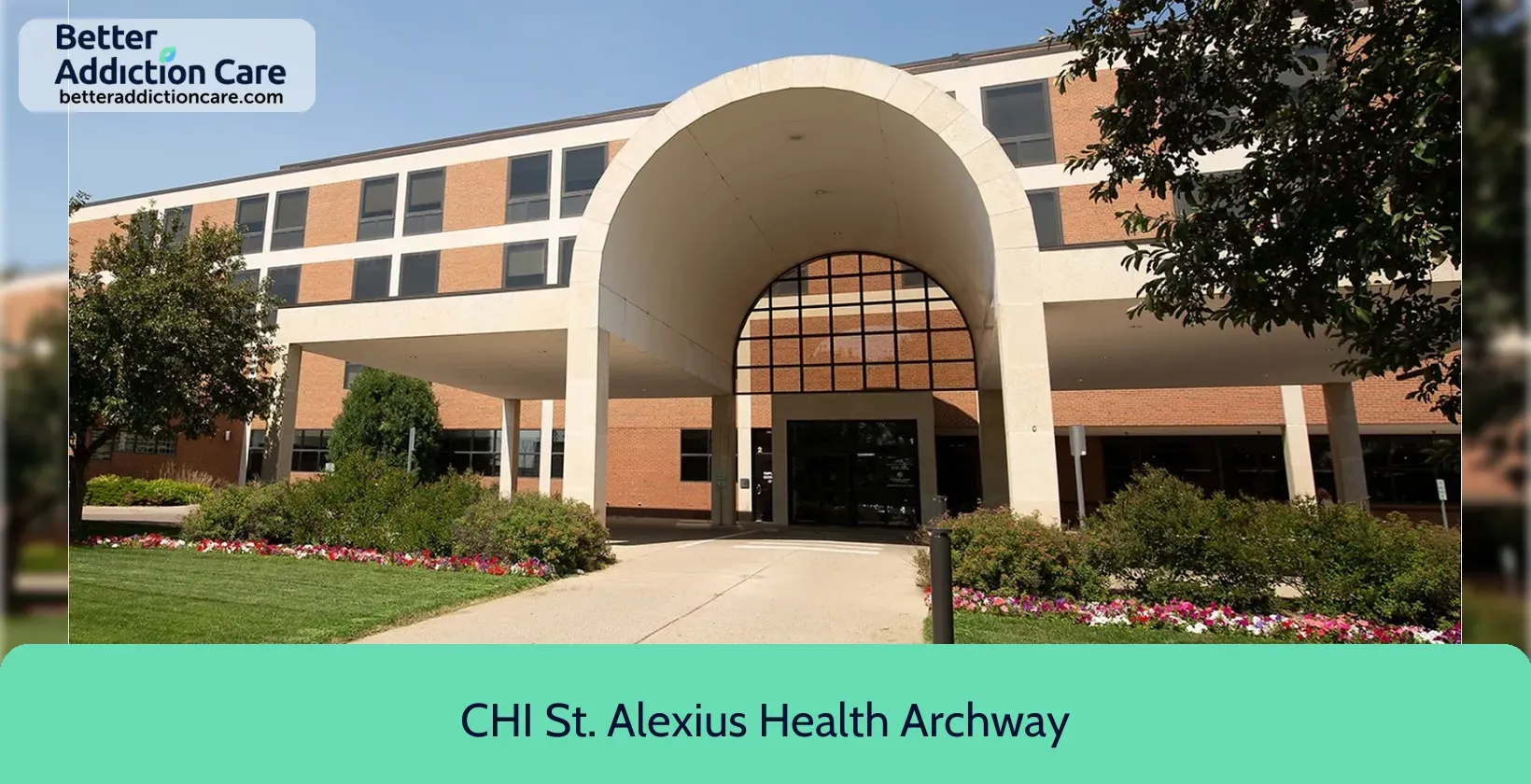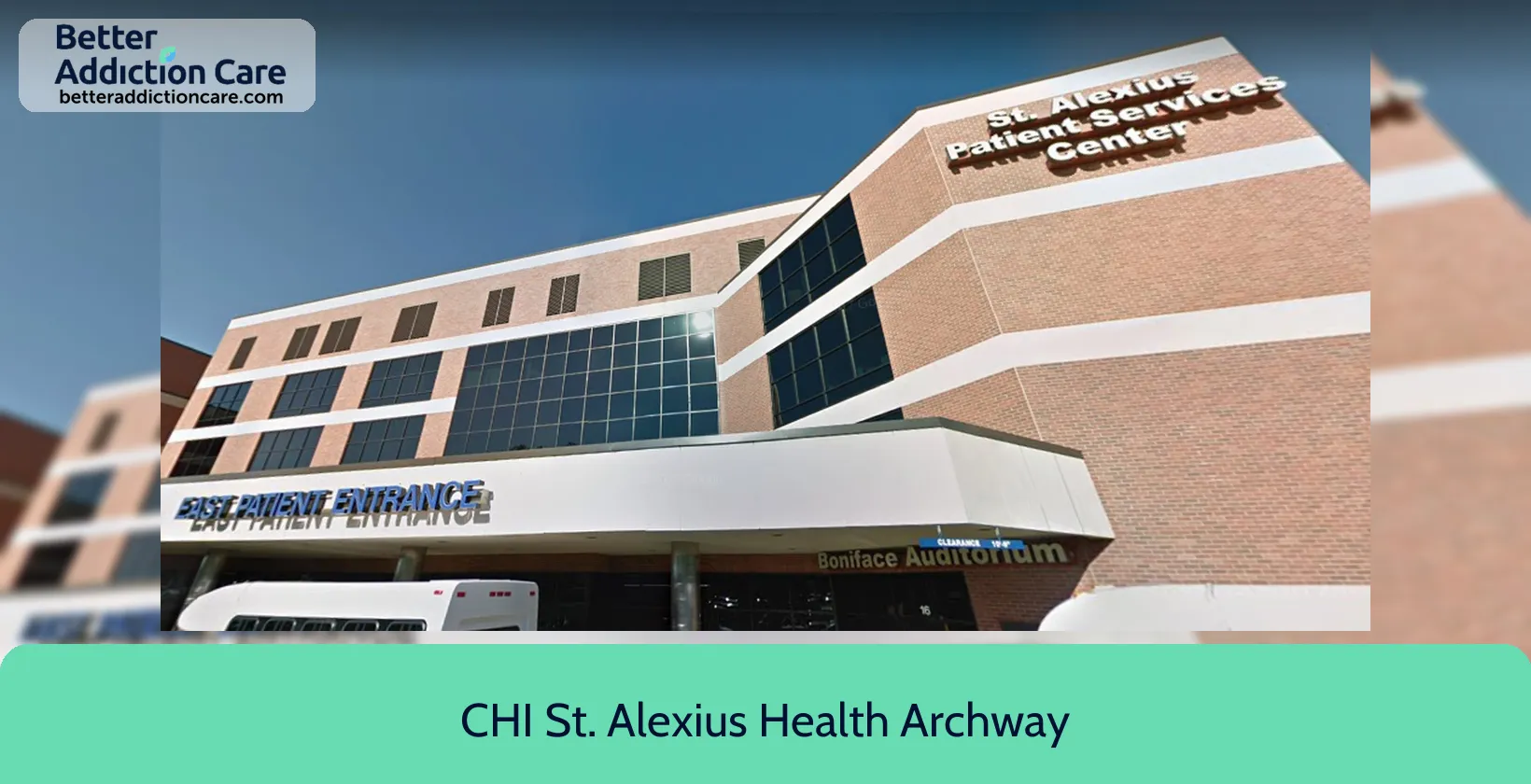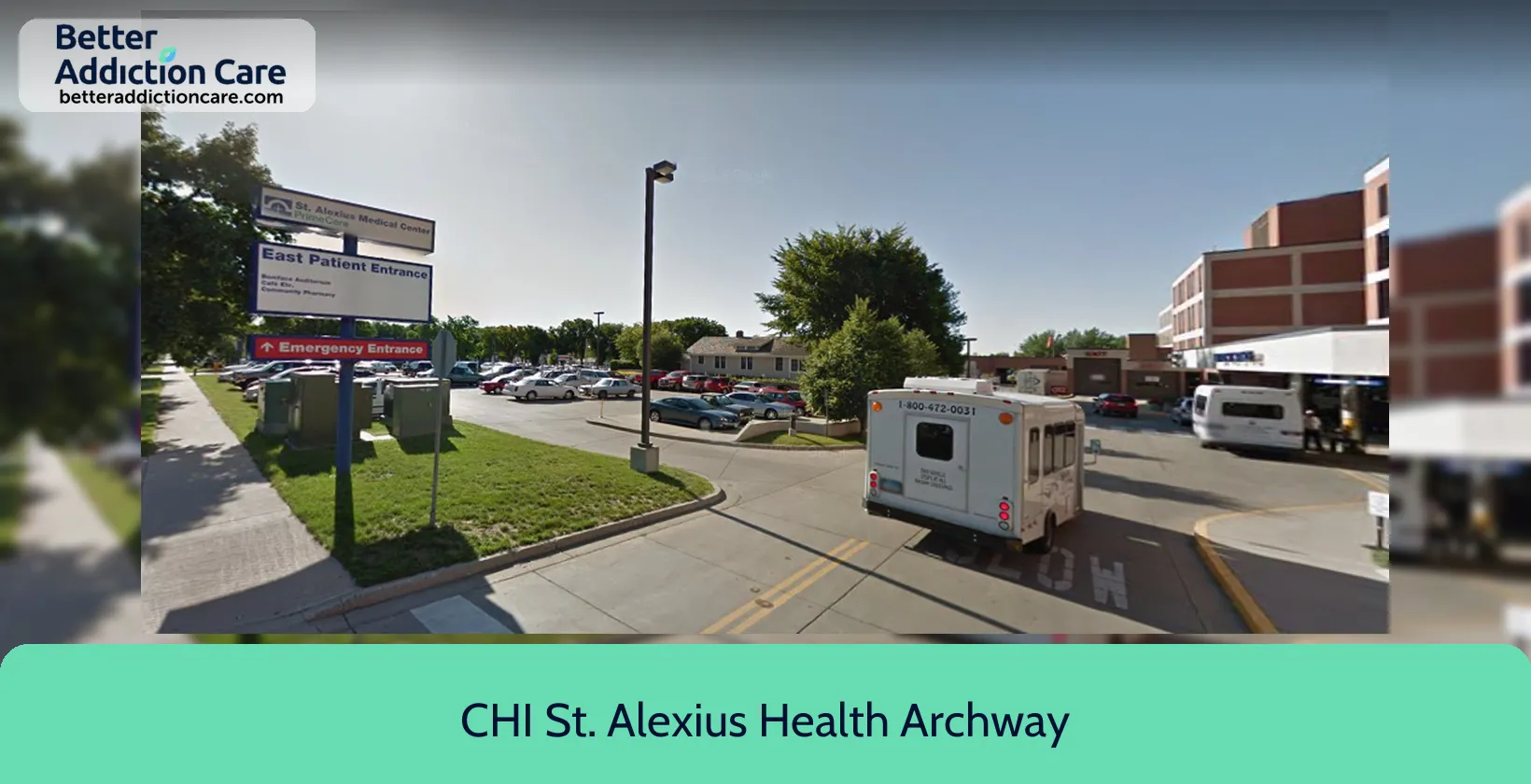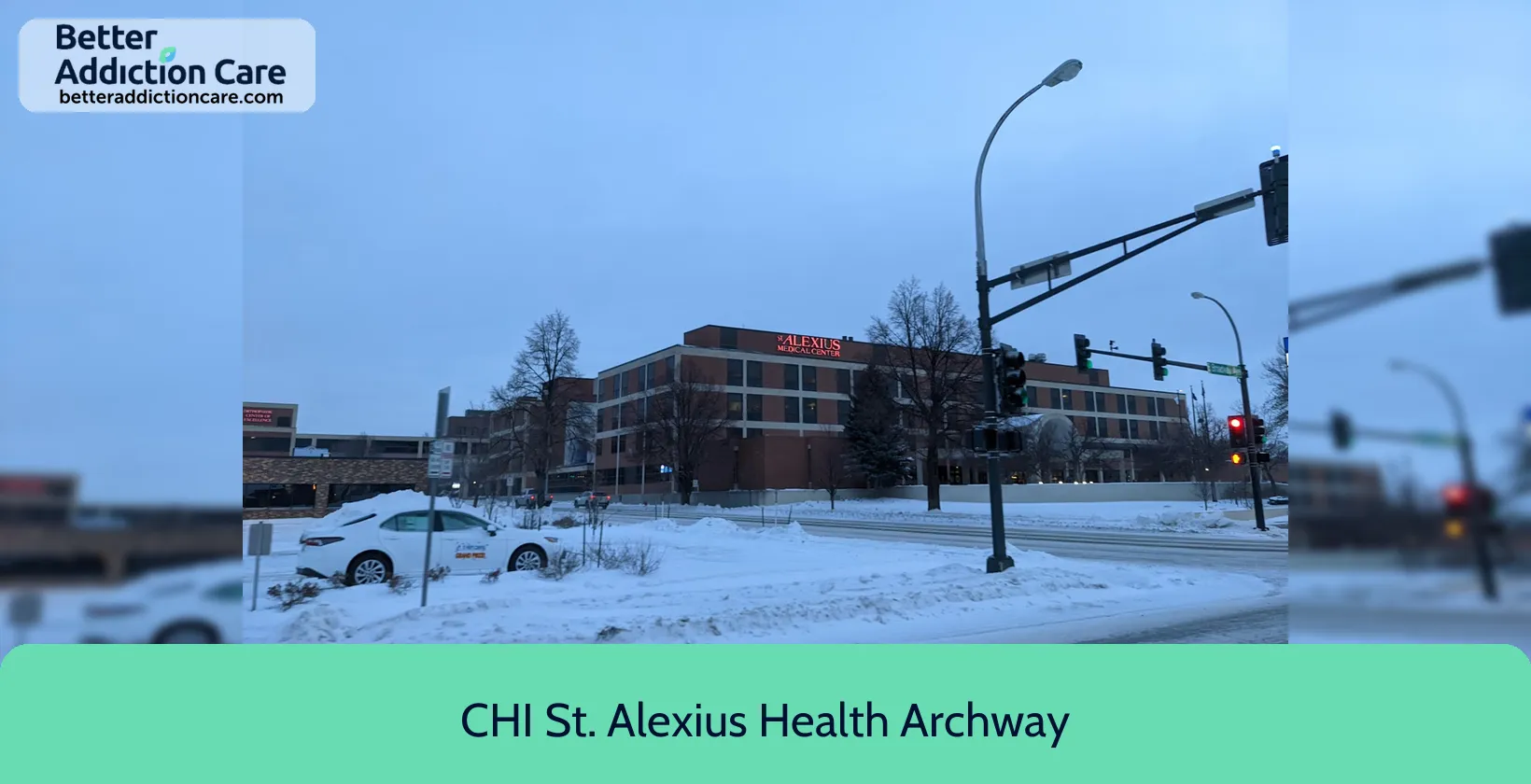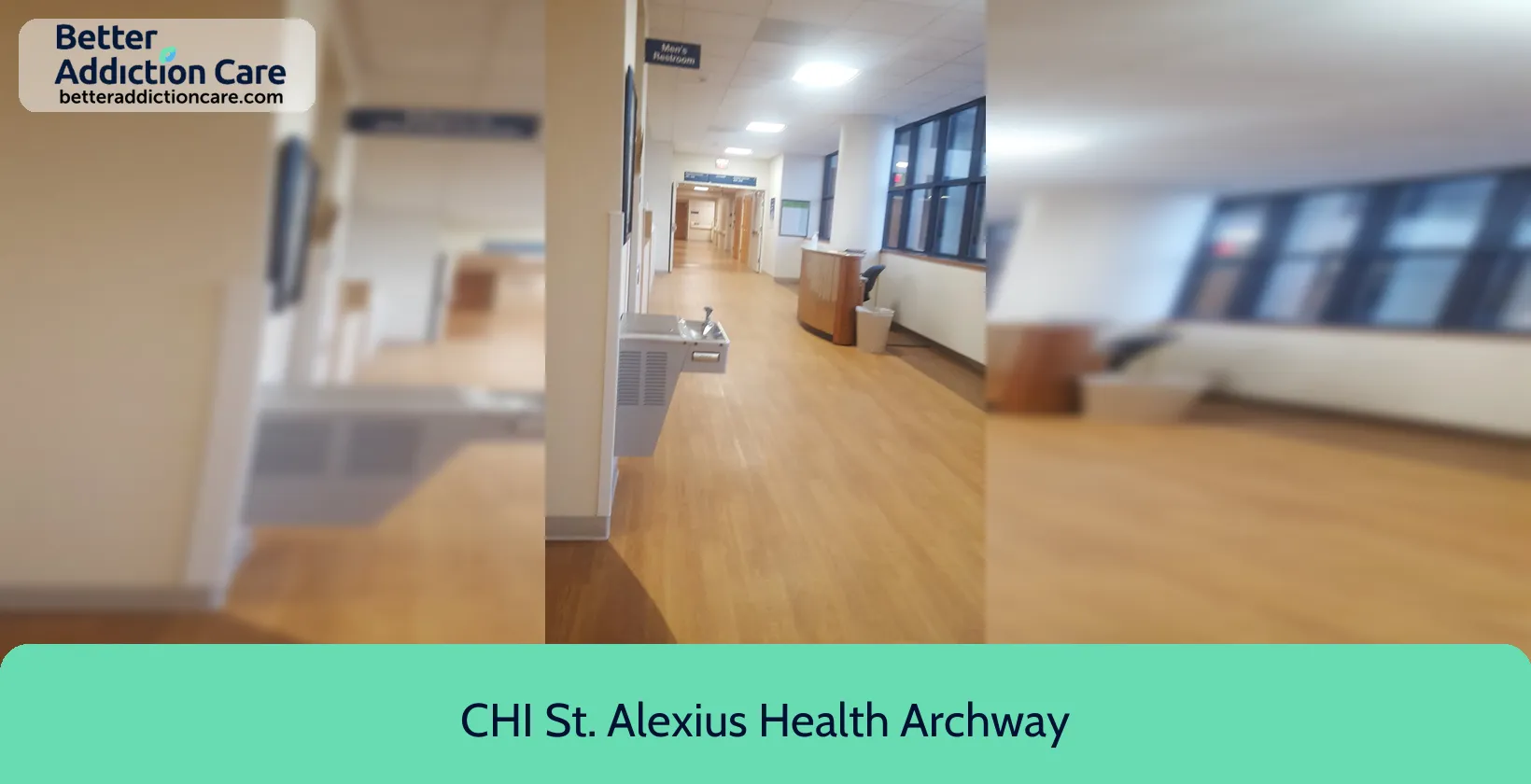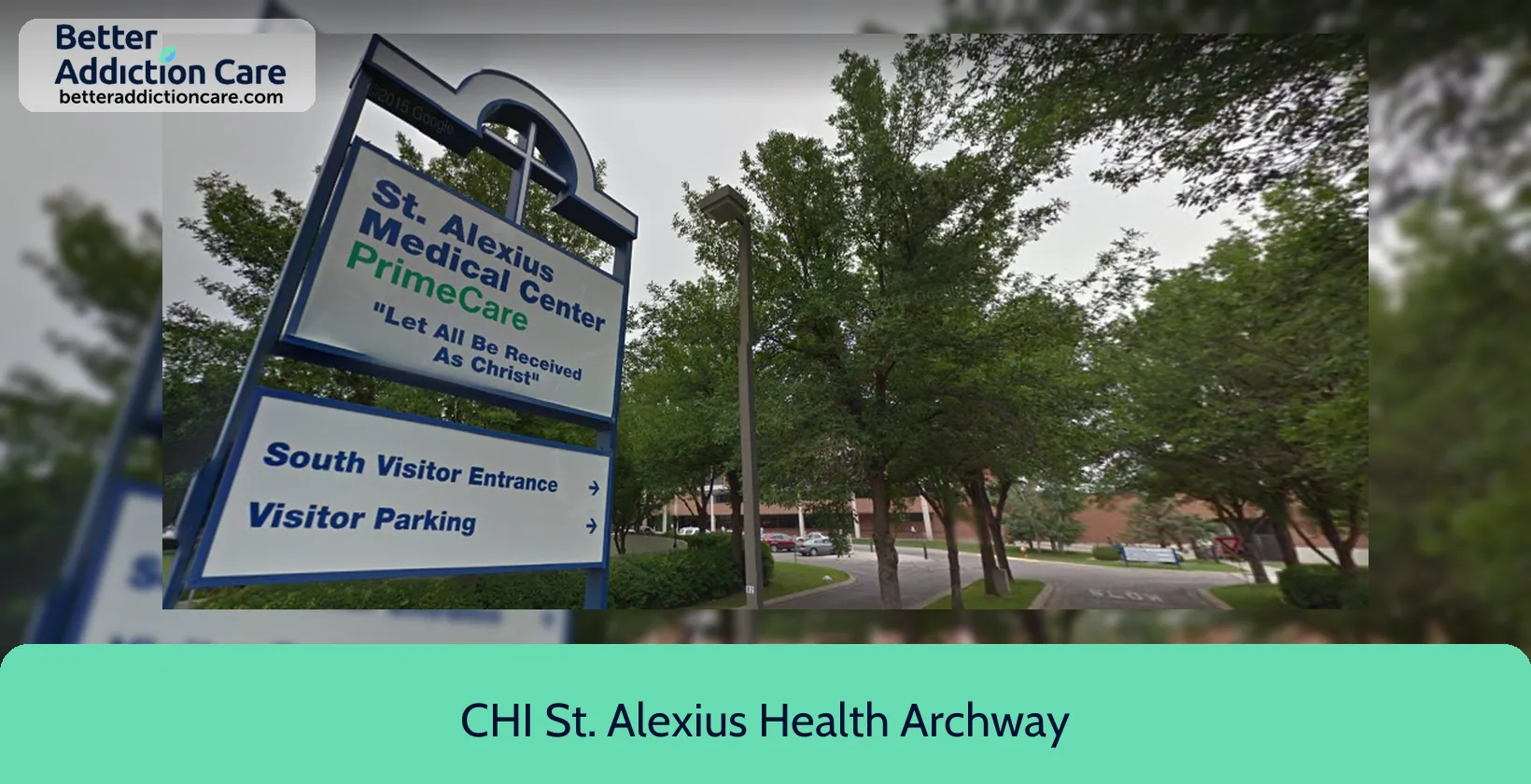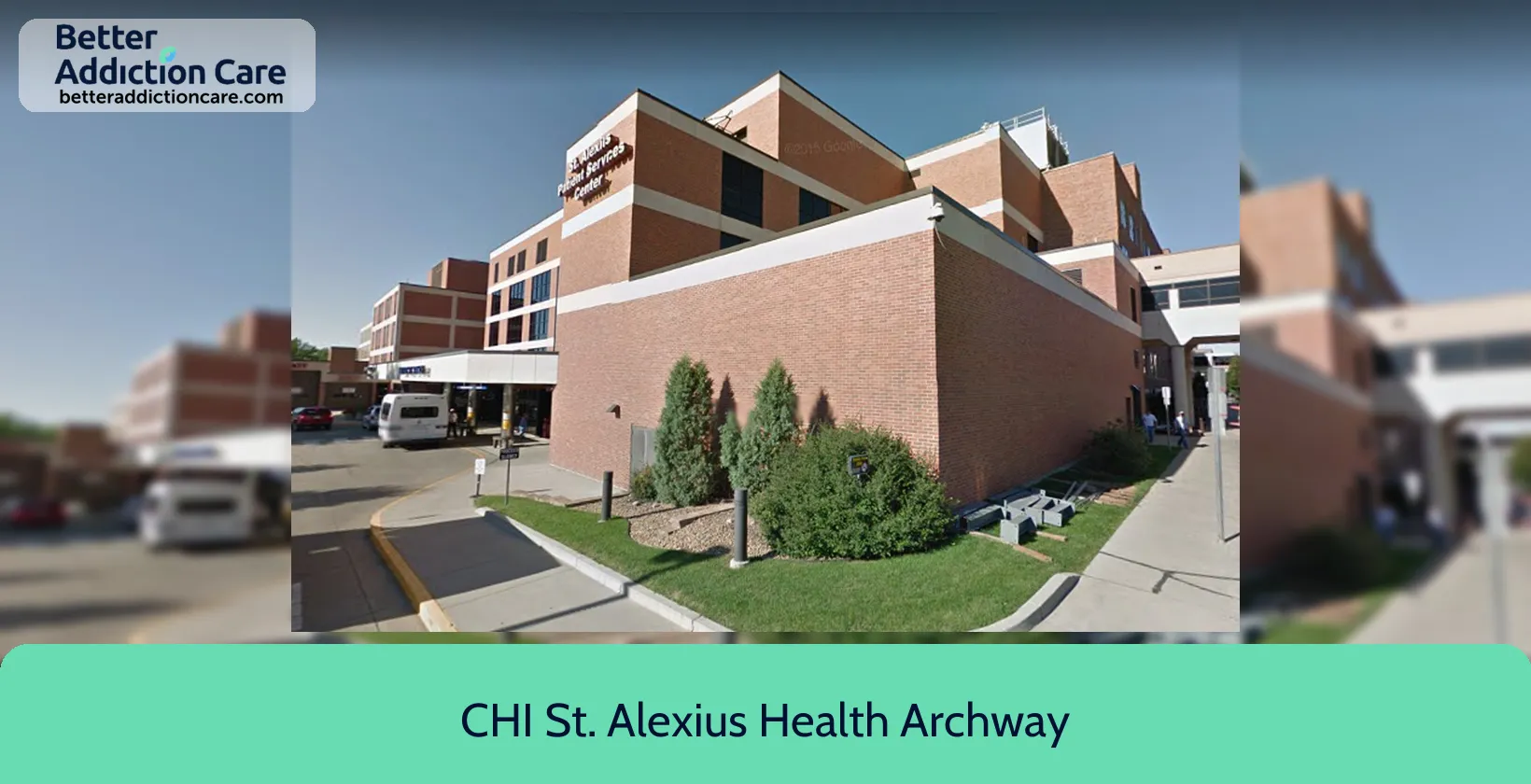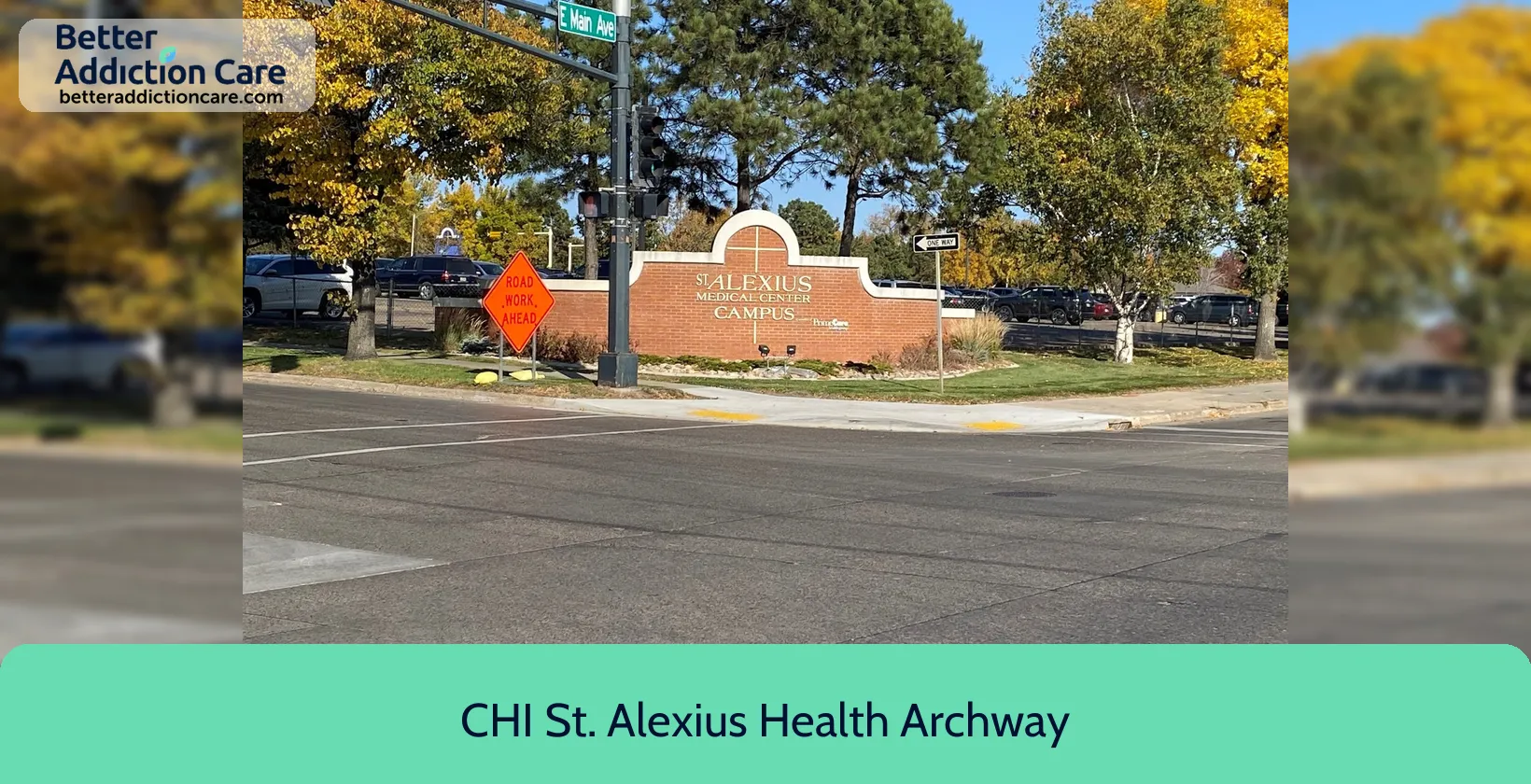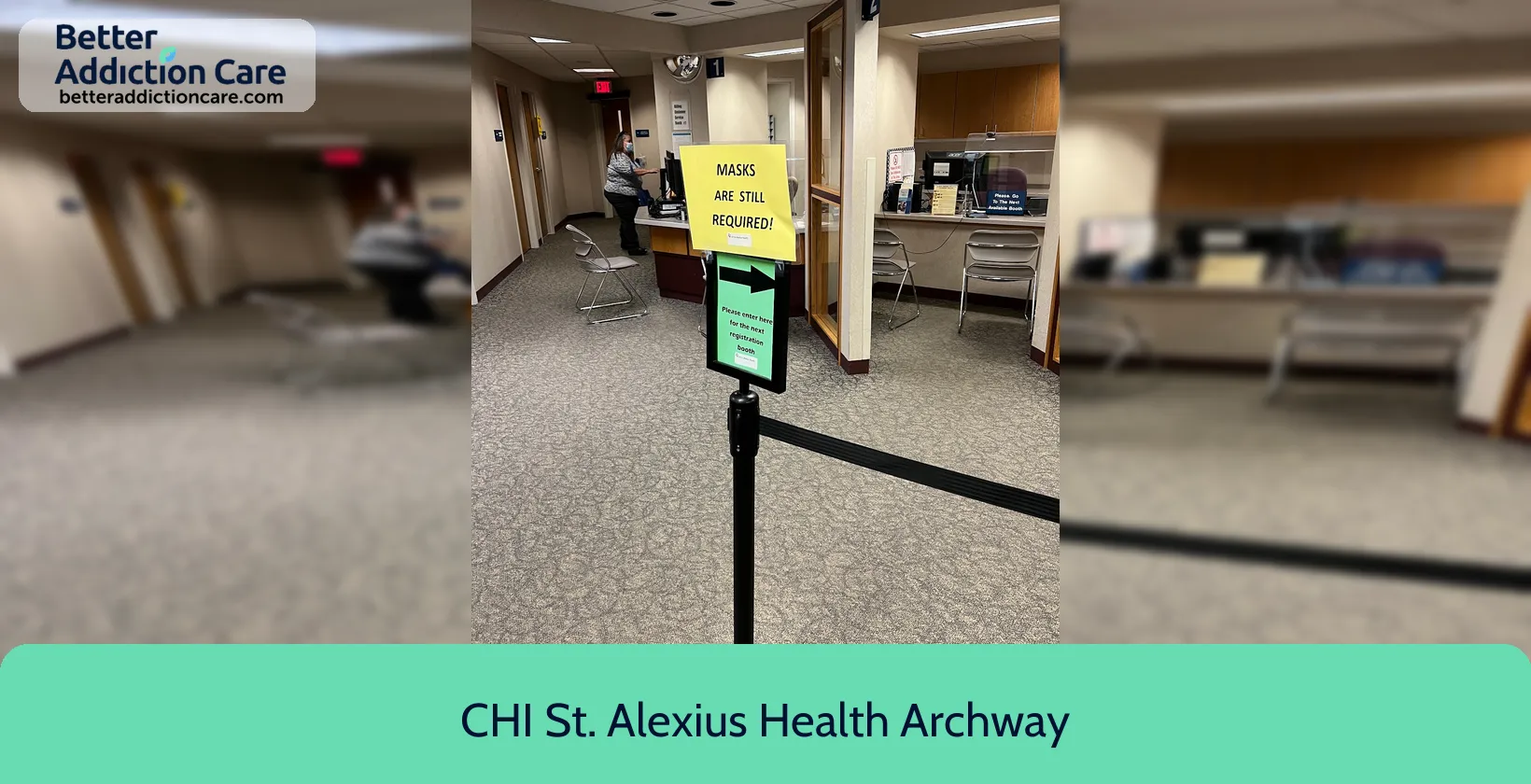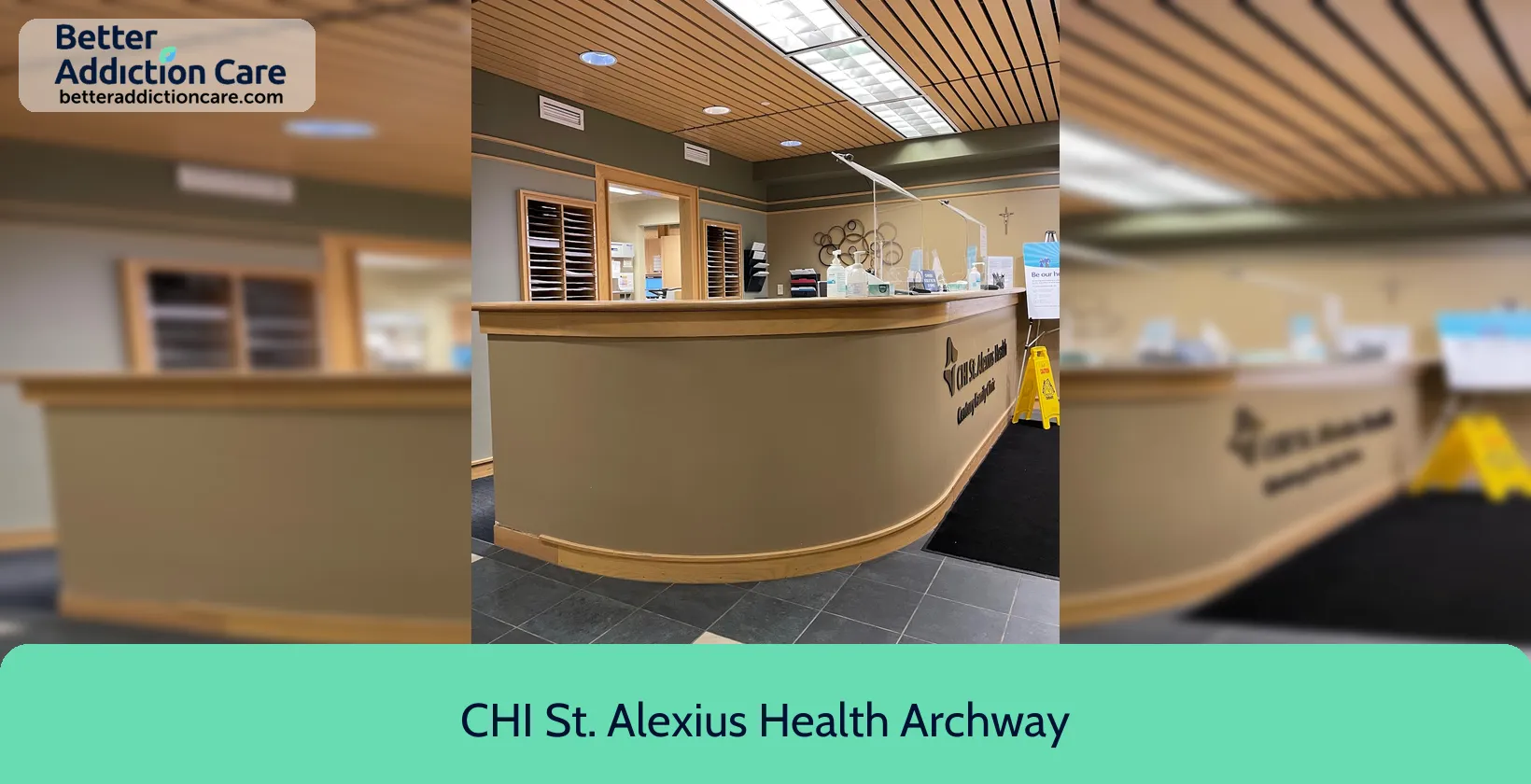CHI St. Alexius Health Archway Mental Health Services
Overview
CHI St. Alexius Health Bismarck is in Bismarck, North Dakota, and offers a wide range of medical and behavioral health services, such as inpatient and outpatient care for people who are having problems with their mental health or drug abuse. The facility follows the Ethical and Religious Directives for Catholic Health Care Services because it is a Roman Catholic group. This means that it uses faith-based values to guide its compassionate care.
The facility has a number of specialized programs, such as the Partial Hospitalization Program (PHP), which is for people who need intensive outpatient treatment for mental health and substance abuse problems. It also has other outpatient treatment choices for people who need ongoing support. Psychotherapy (both one-on-one and in groups), occupational therapy, nursing care, medication tracking, family involvement, and weekly psychiatric meetings are some of the ways that people are treated. The PHP at CHI St. Alexius is the only one in the area and lets patients handle their own recovery without having to stay in the hospital. The facility keeps a high standard of care, making sure that all of its patients get good care. It is accredited by The Joint Commission.
CHI St. Alexius Health Archway Mental Health Services at a Glance
Payment Options
- Cash or self-payment
- Medicaid
- Medicare
- State-financed health insurance plan other than Medicaid
- Private health insurance
Assessments
- Screening for tobacco use
- Comprehensive mental health assessment
- Comprehensive substance use assessment
Age Groups
- Children/adolescents
- Young adults
- Adults
- Seniors
Ancillary Services
- Court-ordered outpatient treatment
- Diet and exercise counseling
- Family psychoeducation
- Suicide prevention services
Highlights About CHI St. Alexius Health Archway Mental Health Services
6.71/10
With an overall rating of 6.71/10, this facility has following balanced range of services. Alcohol Rehabilitation: 8.00/10, Drug Rehab and Detox: 6.00/10, Insurance and Payments: 6.00/10, Treatment Options: 6.85/10.-
Alcohol Rehabilitation 8.00
-
Treatment Options 6.85
-
Drug Rehab and Detox 6.00
-
Insurance and Payments 6.00
Accreditations
The Joint Commission:

The Joint Commission accreditation for addiction and behavioral health is a prestigious recognition signifying a facility's commitment to delivering high-quality care and safety for individuals dealing with substance abuse and mental health issues. It involves rigorous evaluations and assessments, ensuring patients receive evidence-based treatment and exceptional care. This accreditation demonstrates a facility's dedication to continuous improvement and ethical practices, building trust among patients and healthcare professionals seeking top-tier addiction and behavioral health services.
Treatment At CHI St. Alexius Health Archway Mental Health Services
Treatment Conditions
- Alcoholism
- Mental health treatment
- Substance use treatment
- Co-occurring Disorders
Care Levels
- Outpatient
- Partial hospitalization/day treatment
Treatment Modalities
- Couples/family therapy
- Cognitive behavioral therapy
- Dialectical behavior therapy
- Integrated Mental and Substance Use Disorder treatment
- Telemedicine/telehealth therapy
Ancillary Services
Languages
- Sign language services for the deaf and hard of hearing
- English
Additional Services
- Pharmacotherapies administered during treatment
- Individualized Treatment
- Metabolic syndrome monitoring
Get Help Now
Common Questions About CHI St. Alexius Health Archway Mental Health Services
Contact Information
Other Facilities in Bismarck

6.92

6.90

6.80

6.89

7.63

6.71

6.91
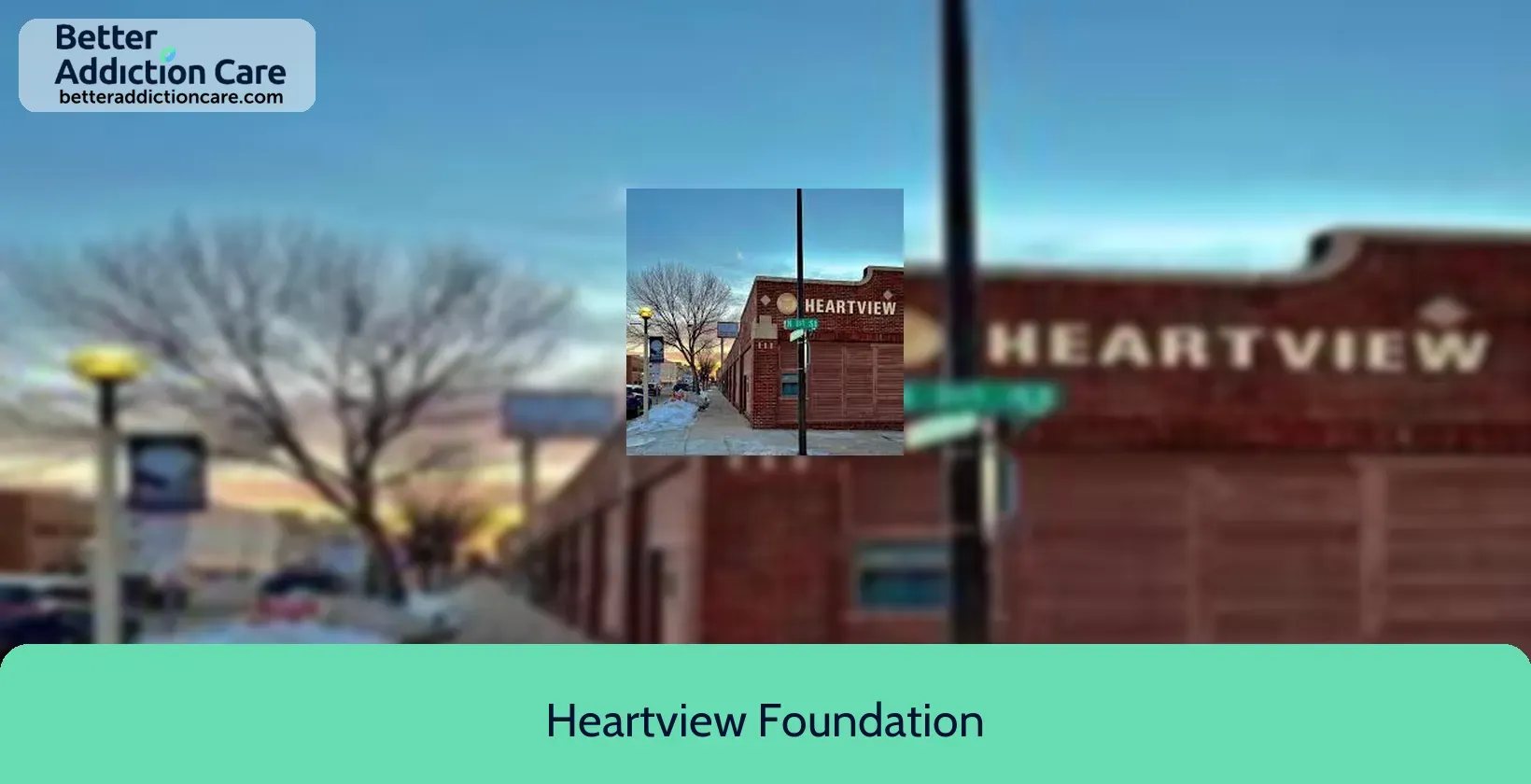
7.74
Browse rehab centers near Bismarck and in other cities across North Dakota
DISCLAIMER: The facility name, logo and brand are the property and registered trademarks of Heartview Foundation, and are being used for identification and informational purposes only. Use of these names, logos and brands shall not imply endorsement. BetterAddictionCare.com is not affiliated with or sponsored by Heartview Foundation.
